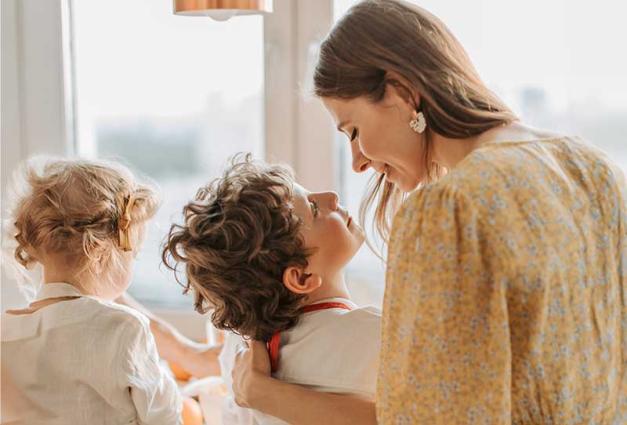The transition to college can be lonely, especially for those vulnerable to feeling anxious in interpersonal relationships. If you have ever felt alone when you are surrounded by people, you know loneliness is not only about how many friends you have, but also about not feeling connected to others as much as you would like. But one thing a person can forget is that how you interpret social interactions matters in how lonely you feel, and those interpretations can depend both on your way of relating to others and your way of viewing yourself.
Some individuals have a negative view of self but a positive view of others, which results in an anxious attachment style—meaning concern about the stability or security of the relationship. In their desperate attempts to avoid the psychological pain of loneliness, people with anxious attachment styles tend to get support by clinging to others or trying to control others to meet their needs, in part because they see themselves as helpless and have difficulty regulating their feelings of distress on their own.
But maybe this pattern can be altered. If people with more positive views of self tend to feel less lonely because they interpret social interactions more positively, then maybe that’s where change can start. Breaking a cycle of negative self-views and negative interpretations is especially important for first-year college students who are confronted with leaving home for the first time, making new friends, attempting challenging coursework, and trying to figure out who they are in this new environment.
How We View Ourselves And Others Matters In Loneliness
In our study, we asked first-year college students about their attachment styles (which could be anxious, for example, or avoidant), their overall feelings of self-esteem, their loneliness, and the different types of support they receive from others—where support could mean information, tangible items/services, emotional support, sense of belonging, validation, or opportunity to help others.
Indeed, both their self-view and their view of others affected feelings of loneliness in students with anxious attachment styles. Students who were more anxious in relating to others tended to have lower self-esteem and their maladaptive strategy of trying to engage others may have intensified their unsatisfied needs for support, which is in turn related to more loneliness. Emotional support and receiving tangible help and information from others were particularly important in reducing feelings of loneliness. It may be that students with more anxious ways of relating feel close to others when they receive emotional and practical support, but feel lonely if these specific needs are not met.
We think these findings could help diversify coping skills for first-year students adjusting to college. Targeting negative self-views by highlighting individuals’ strengths and helping the individual “reframe” negative beliefs about themselves—“I have the tools and skills to deal with negative emotions” instead of “I am helpless” —might be effective in changing the filter that these students have about themselves, which affects how they interpret social interactions. Building self-esteem can help students perceive social interactions in a more positive light. They can now say, “They are being nice to me because I am a good person” instead of “They are being nice to me to get something from me. If not, why would they be nice to someone like me?”
First-year students who are prone to anxious ways of relating to others may also benefit from feeling a strong emotional bond with at least one other person, such as family members or friends from high school. They can go to such a person for important decisions or advice if they are having problems or have an emergency. These types of support can help these students feel more intimate with others and protect against feelings of isolation.
Know Your Pattern And Learn More Effective Ways To Communicate And Deal With Negative Emotions And Thoughts
The results from this study are even more relevant in the current climate in which most college students have experienced disruptions in social support due to COVID-19-related restrictions. Considering the recent increases in anxiety and loneliness among college students, interventions targeting self-esteem by highlighting their strengths and more effective and healthy ways of engaging with others may help students learn how to ask directly for emotional support, advice, or tangible help—instead of indirectly trying to engage others by making catastrophic evaluations of the situation, dwelling on negative emotions, and/or being hypervigilant to cues of rejection.
Therapists at college counseling centers may consider helping first-year students who struggle with feelings of loneliness and who have these ineffective behavioral patterns by understanding where they come from (such as early behavioral patterns of engaging with parents) and by guiding them to develop more effective interpersonal skills. Strengthening self-esteem and the ability to better deal with negative emotions are learnable skills.
For Further Reading
So, C., & Fiori, K. L., (2022). Attachment anxiety and loneliness during the first year of college: self-esteem and social support as mediators. Personality and Individual Differences, 187, 111405. https://doi.org/10.1016/j.paid.2021.111405
Christine So is a doctoral student in Clinical Psychology at Gordon. F. Derner School of Psychology, Adelphi University. Her research focuses on the social relationships of young and older adults.




